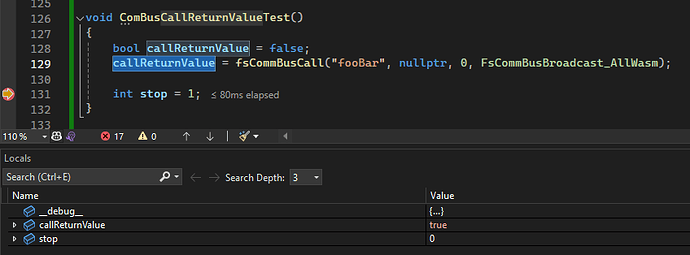Version: SU15 - 1.37.8.0
SDK Version: 0.24.1.0
Frequency: Consistently
Severity: High
Hi Team,
so, I was trying to figure out, if a certain function has already been registered via fsCommBusRegister() by a wasm with the above mentioned method in order to determine, if I should register it myself.
My approach was to simply call the function and as it should not have been registered yet, receiving a false from the above mentioned methods return value. But this method always returns true for me, as if the call was going somewhere successful, even though this is not possible and of course the breakpoint in this method is also not hit in my code, suggesting that something is wrong with the return value of fsCommBusCall() itself.
In this very quick and dirty demo I try and register “fooBar” right after my wasm has been loaded by the sim and as you can see, callReturnValue is true after the fsCommBusCall().
As I was not using the whole CommBus functionality prior to SU 15 flighting and the most recent SDK, I cannot say, if it behaved differently before.
Maybe somebody can enlighten me, what might be going on?
Greets,
Ben
